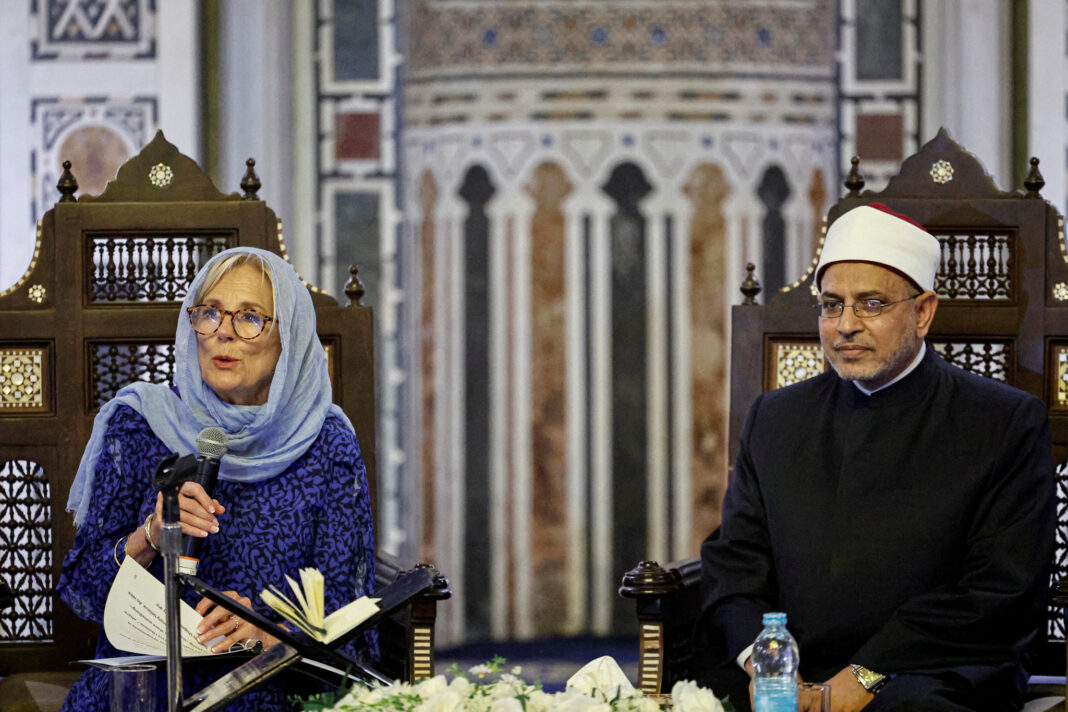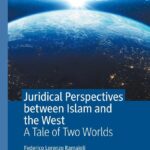A Global Space for A Global Challenge: A Tale of Two Worlds
"Juridical Perspectives between Islam and the West. A Tale of Two Worlds" Palgrave Macmillan, New York 2024. An excerpt from the new book by Federico Lorenzo Ramaioli published in collaboration with gLAWcal - Global Law Initiatives for Sustainable Development

Every civilization in history has felt the need to form and develop a precise and unique legal order, characterized by the particular desire to set out rules and norms. This spontaneous regulation of the various aspects of social life cannot but illustrate a culture-specific juridical sensibility, deeply inherent to the “political” nature of the human being. Evidently, it can be easily argued that a society without a certain form of legal regulation, gradually accrued and enriched along its developing path, cannot actually exist.
This is nothing less than the recurring concept expressed by the Latin formula ubi societas, ibi jus, whose origin, despite its use henceforth, seems to have been lost in the centuries of our ancestral past. Yet, the vagueness of its origin qualifies it as a fundamental philosophical idea deeply rooted in our culture, indicating the universal and essential nexus between human society and the idea of law. Whenever a society grows and develops, the exigency of establishing an order characterized by a normative dimension necessarily arises. More than a legal principle, it would be appropriate to say that it represents a political and social contingency, implied in the progressive structuration of human civilizations. It is in this precise moment that a certain idea of normativity comes to life, both shaping its civilization and being shaped by it.
Regardless of the substantive content of rules and norms, the shape of a legal order greatly changes depending on the kind of social, cultural and historical context and background from which it originates. The sense of what Herder called Volkgeist, as interpreted by the historical school of von Savigny, is indeed something deeply affecting the juridical awareness of world history. Again, it is not simply affecting the substance of the commands imposed by the established authority on its subjects. Rather, it can be considered a meta-juridical sense of traditional and cultural heritage, influencing the following establishment of legal ideals in a given society. Law, in this respect, cannot be simply produced ex novo by a rational operator, but is rather inherited, being deeply characterized by the philosophical and traditional customs of a community. In a given civilization, finding a certain degree of continuity is unavoidable, characterized by recurring conceptual constructs and constant normative elements. Therefore, law is neither an artificial product, nor a universal conception, but something strictly inherent to the civilization it belongs to. Again, and as Rosen has exhaustively shown, law is part of the realm of culture, and legal dynamics can be properly explained and analyzed if interpreted in this sense.
Although, through the centuries, the various juridical models have been periodically subject to mutual influences due to reciprocal exchanges, there has never before been such a clear indication of juridical contamination as is the case nowadays. The economic and political processes of “glocalization”, adopting commonly used terminology, have witnessed the more and more frequent migration not only of people and capitals, but of philosophical visions and legal notions as well. Regarding this, Menski speaks of an “increasing hybridisation in locality-coloured and culture-specific forms worldwide”, with legal theorists needing “to be better equipped to understand the manifold pluralities within and between legal systems as complex entities with ragged boundaries”. This is even truer following the progressive erosion of the political paradigm of territorial sovereignty, whose theory on law and statehood greatly influenced Western society in the post-Westphalian world. Following the eclipse of the perfect coincidence between State and law, in this transitional period of our history, it is ultimately impossible to identify the overall legal order exclusively with national law as produced by the established institutions of a sovereign entity.
Today, the various conceptions of law appear to be much more complex and articulated, due to the shift in the economic and political scenario from a system fundamentally based on modern national statehood to a virtually global and a-systemic space. In this context, it is indeed the very idea of spatiality itself to be questioned. With the slow but inexorable loss of significance of the idea of a geographical partition exclusively delimited by national borders, due to the emergence of international entities and transnational capitalism, it is inevitable that the traditional way in which the Western world conceived the juridical phenomenon would be fundamentally challenged.
If it is not likely that the national conception of law will disappear in the transition to a borderless and global (non)space, the juridical sciences must nevertheless identify possible new legal and philosophical trends, in order to foresee the evolution of new economic and political models. To summarize, one needs to ask with which conceptual instruments it will be possible to reinterpret and rethink law in a global context, in days in which the present international paradigms are about to progressively undergo relevant changes, and in which at the same time there are no new properly theorized models to replace the current ones.
In this fast-changing scenario, characterized by the absence of fixed and dogmatic conceptions, we consequently witness a relatively free circulation of various juridical ideas and different legal models, once relegated in closed geographical spaces whose virtual borders have now been opened. Globalization, from this point of view, seems to have greatly affected the legal world as well, if we consider how juridical notions progressively accrued in a given historical and social context can now, relatively easily, move to a completely different kind of society, and possibly coexist with indigenous models. It is therefore not a new idea of global legislation, but rather a global circulation of different kinds of legal and philosophical constructs. As Krisch has observed, the structure of post-national law appears to be inherently pluralist, thus open to the possibility of the encounter with other sensibilities.
A global juridical scenario, which inevitably lacks global juridical institutions, offers at the same time opportunities and threats. On the one hand, jurists are now given the unique opportunity to analyze and examine the effects of the encounter of legal perspectives which until now had been relatively isolated and self-sufficient. This should be regarded as a new chance to understand the dynamics of the interactions between different cultures and anthropologies, whose evolutions and outcomes are not usually predictable. On the other hand, however, attention must be paid to the possible lack of coherence in a single juridical framework – as a constitutional system, a code of legislation, a de facto legitimated way of ruling – incorporating trends and ideas which are not always compatible with one another. This context is the ideal one in which to develop a new approach to juridical analysis, taking the move from the discourses of legal pluralism and, more recently, legal translation, but overcoming their very boundaries in a broader philosophical and anthropological discourse.
Following these premises, one of the most interesting reflections to be made in this context relates to the different conceptions between two ways of conceiving the juridical phenomenon: the Islamic legal perspective and the Western one.
These two perspectives, reflecting two legal epistemologies and two specific ways of thinking about the relationship between God and man, and between law and society, came across one another multiple times in the course of history. However, it is in the postmodern world, and in the aforementioned transitional scenario, that they benefit from the opportunity of coexisting in the same social and legal context. In a number of countries very different historically and in terms of religious practices such as Egypt, Saudi Arabia, Morocco, but also in some countries of the old Europe, in an unprecedented manner we can witness the close encounter between legal visions and models of rule and justice, sometimes completing and enriching each other, and other times conflicting in paradoxes whose philosophical implications require a deeper analysis.




